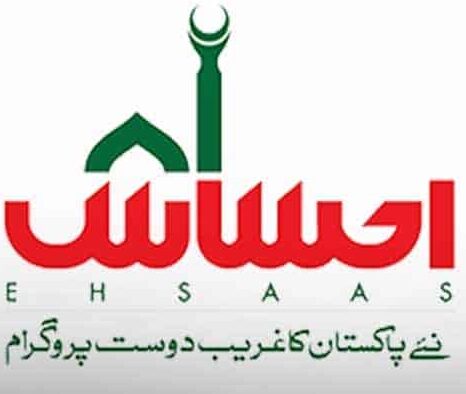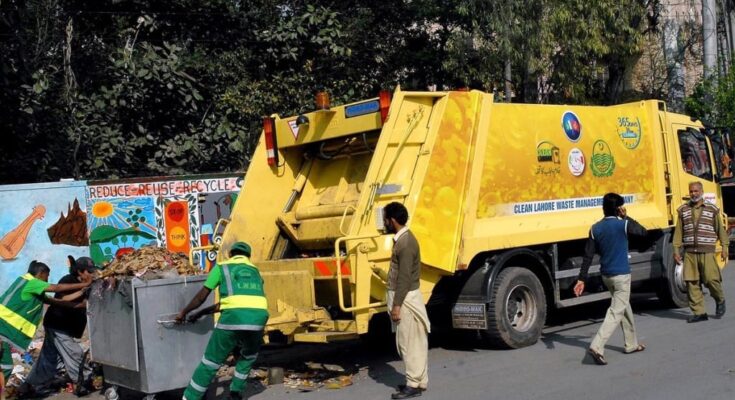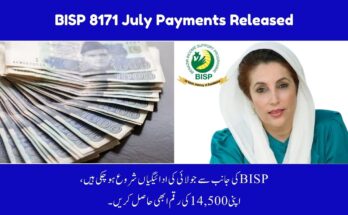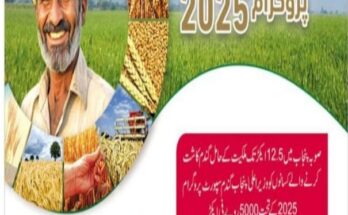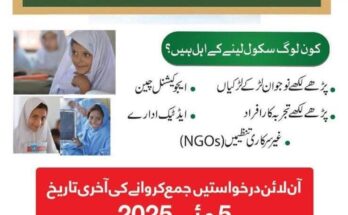Introduction
The “Suthra Punjab” initiative, launched under the leadership of Punjab Chief Minister Maryam Nawaz Sharif, represents a landmark effort to revolutionize sanitation and waste management across Pakistan’s most populous province. Officially inaugurated on December 3, 2024, the program aims to achieve a “Zero Waste Punjab” within three months, addressing the critical need for a cleaner, healthier, and more sustainable environment. With Punjab generating millions of tons of solid waste annually, the initiative introduces a standardized, technology-driven, and community-focused sanitation system that spans urban and rural areas. This article explores the origins, objectives, implementation strategies, challenges, and potential impact of Suthra Punjab, highlighting its significance as a model for environmental governance in Pakistan.
Background and Need for Suthra Punjab
Punjab, home to approximately 128 million people, faces significant challenges in managing its waste. According to the International Trade Administration, Pakistan produces nearly 49.6 million tons of solid waste annually, with Punjab contributing a substantial portion. While 60% of waste in large cities is collected daily, the remaining 40% often accumulates in open plots, streets, drains, and nullahs, posing health and environmental risks. In Punjab, the lack of managed landfill facilities has led to widespread open dumping, exacerbating pollution and undermining public health.
Prior to Suthra Punjab, sanitation efforts in Punjab were inconsistent, with only Lahore benefiting from an effective waste management system outsourced to Turkish companies Albayrak and OzPak. Other cities and rural areas lagged behind, with inadequate infrastructure, poor worker conditions, and limited public participation. Chief Minister Maryam Nawaz acknowledged the unsatisfactory sanitation situation in cities like Lahore and Sargodha, emphasizing the need for uniform cleanliness measures across the province. The Suthra Punjab program was conceived to address these systemic issues, aligning with the provincial government’s broader vision of environmental sustainability and public welfare.
Objectives of Suthra Punjab
The primary goal of Suthra Punjab is to eliminate visible waste across Punjab within 90 days, creating a “Zero Waste Punjab.” This ambitious target is underpinned by several key objectives:
- Standardized Sanitation System: Implement a uniform waste management system across all cities and villages to ensure consistent cleanliness standards.
- Public-Private Partnership: Leverage collaboration between government agencies and private sector entities to enhance efficiency and sustainability.
- Technology-Driven Monitoring: Utilize real-time monitoring, geo-tagged data, time-stamped pictures, and user-friendly dashboards to ensure transparency and accountability.
- Community Engagement: Encourage public participation through feedback mechanisms and awareness campaigns to foster a shared responsibility for cleanliness.
- Worker Welfare: Improve the working conditions and job security of sanitary workers, addressing systemic neglect and exploitation.
These objectives reflect a holistic approach to waste management, combining infrastructure development, technological innovation, and social reform.
Key Features and Implementation Strategies
Suthra Punjab encompasses a wide range of activities designed to transform the sanitation landscape of Punjab. The program’s implementation is structured in phases, with the first phase launched in 100 tehsils by mid-October 2024 and the second phase covering an additional 34 tehsils by mid-November. Below are the key features and strategies driving the initiative:
1. Comprehensive Waste Management Activities
Suthra Punjab includes a variety of sanitation tasks, such as:
- Door-to-Door Collection: Ensuring waste is collected directly from households to prevent open dumping.
- Manual Sweeping and Drain Desilting: Regular cleaning of streets and drains to maintain hygiene.
- Open Heaps Clearance: Removing accumulated waste from public spaces.
- Waste Collection and Safe Dumping: Establishing designated waste enclosures and landfill sites for proper disposal.
To date, over 100,000 sanitary workers have been deployed province-wide, collecting 2.721 million tons of waste. The program has established 1,300 waste enclosures and 88 landfill sites, demonstrating significant progress in infrastructure development.
2. Technology Integration
A cornerstone of Suthra Punjab is its use of technology to enhance efficiency and accountability. The Suthra Punjab mobile application, launched on December 3, 2024, allows citizens to provide feedback on cleanliness and report issues, fostering community involvement. The app is supported by a dedicated dashboard that monitors program activities in real-time, using artificial intelligence to ensure cleanliness standards are maintained. Features such as geo-tagged data and time-stamped pictures enable precise tracking of sanitation tasks, while user-friendly dashboards provide actionable insights for administrators.
The Punjab Information Technology Board (PITB) has played a pivotal role in this technological transformation, conducting training sessions for waste management companies and contractors to effectively utilize the Suthra Punjab dashboard. These efforts underscore the program’s commitment to leveraging digital tools for sustainable waste management.
3. Public-Private Partnership
Suthra Punjab operates as a public-private partnership, with private sector involvement prioritized to achieve the zero-waste target. This collaborative model has enabled the program to scale rapidly, with companies like the Lahore Waste Management Company (LWMC) playing a key role in implementation. The partnership also facilitates the outsourcing of sanitation services in cities like Lahore, building on successful models established by Turkish firms.
4. Community Engagement and Feedback
Recognizing that cleanliness is a shared responsibility, Suthra Punjab emphasizes public participation. The Suthra Punjab app includes a mechanism for citizens to submit complaints, which are addressed promptly through an effective redressal system. Additionally, the program plans to launch sensitization campaigns targeting students to promote the importance of cleanliness. By fostering a culture of accountability and collaboration, Suthra Punjab aims to create lasting behavioral change.
5. Monitoring and Supervision
To ensure the program’s success, Punjab Chief Secretary Zahid Akhtar Zaman has directed deputy commissioners to establish comprehensive monitoring mechanisms at the union council level. This includes regular supervision of human resources, machinery availability, and challenges faced during implementation. Special cleanliness arrangements have been mandated ahead of events like Eid-ul-Fitr, with contractors required to disburse sanitary workers’ salaries before the holiday.
Achievements and Impact
Since its launch, Suthra Punjab has made significant strides in improving sanitation across Punjab. Punjab Information Minister Azma Bokhari praised the program’s role in maintaining a pollution-free environment, noting unprecedented cleanliness during Eid in Sheikhupura. The local administration’s dedication, even during holidays, has ensured a cleaner environment for residents.
The program’s data-driven approach has also yielded impressive results. Over 20,000 cleanliness-related complaints have been resolved, demonstrating the effectiveness of the feedback mechanism. The deployment of 100,000 sanitary workers and the establishment of waste enclosures and landfill sites have laid the foundation for a sustainable waste management system.
Moreover, Suthra Punjab has garnered political support, with the Pakistan Peoples Party (PPP) acknowledging Chief Minister Maryam Nawaz’s performance while raising concerns about equitable implementation across regions. Coordination meetings between the PPP and the Pakistan Muslim League-Nawaz (PML-N) have ensured that the program remains a priority, with commitments to address governance shortcomings.
Challenges and Criticisms
Despite its achievements, Suthra Punjab faces several challenges that must be addressed to ensure long-term success. One major criticism is the program’s initial focus on superficial measures rather than systemic reforms, particularly regarding the welfare of sanitary workers. A report by The News highlighted the dire working conditions faced by sanitary workers, including a lack of safety gear, inadequate job security, and exposure to hazardous waste. Between 2011 and 2021, 11 sanitary workers died in Punjab due to unsafe conditions, underscoring the need for occupational safety reforms.
The Punjab Labour Policy currently lacks a dedicated chapter on sanitation workers, and many remain classified as “permanent workmen” rather than regular employees, denying them benefits like pensions and health insurance. The absence of a law banning manual scavenging further exacerbates these issues, trapping workers in a cycle of poverty and exploitation.
Additionally, some critics argue that Suthra Punjab has been unevenly implemented, with projects primarily executed in PML-N strongholds. The PPP has called for better coordination in Central Punjab to ensure equitable distribution of resources. Addressing these disparities will be crucial to achieving the program’s province-wide objectives.
Future Prospects and Recommendations
Suthra Punjab has the potential to serve as a model for waste management in Pakistan, but its success depends on addressing current challenges and sustaining momentum. The following recommendations can strengthen the program:
- Enhance Worker Welfare: Revise the Punjab Labour Policy to include a dedicated chapter on sanitation workers, ensuring job security, safety gear, and benefits like health insurance and pensions.
- Expand Infrastructure: Invest in additional landfill sites and waste processing facilities to reduce reliance on open dumping.
- Promote Recycling: Integrate recycling initiatives to reduce waste volume and support the informal scavenging sector.
- Ensure Equitable Implementation: Prioritize underserved regions to ensure uniform cleanliness standards across Punjab.
- Strengthen Public Awareness: Launch sustained campaigns to educate residents about waste segregation and the importance of cleanliness.
Conclusion
Suthra Punjab represents a bold and ambitious step toward transforming sanitation and waste management in Punjab. By combining technology, public-private partnerships, and community engagement, the program has made significant progress in addressing the province’s waste crisis. However, challenges related to worker welfare, equitable implementation, and systemic reforms must be addressed to ensure long-term sustainability. With continued political will, public support, and strategic investments, Suthra Punjab has the potential to create a cleaner, healthier, and more sustainable future for Punjab’s 128 million residents.
